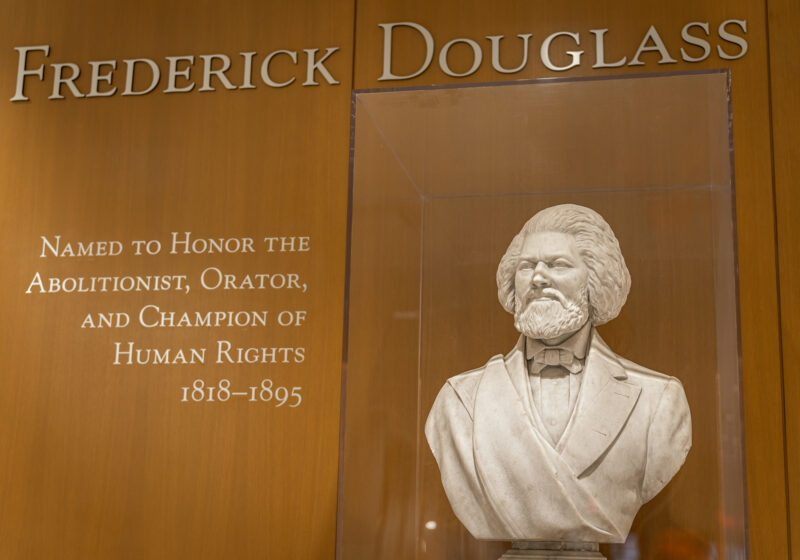I will be frank: Due to obvious gender stereotypes, I’m by no means expected to be a fan of, have a passion for, or even have an emotional connection to sports.
When I explain to my peers that I work for the Campus Times, the section people least expect me to work for is the one that I’ve spent the last two years cherishing.
Growing up, I wasn’t the most athletic. I never oozed with talent. In fact, my athletic mediocrity makes me question why I feel a connection to sports.
After putting together where my allegiance lies in the sporting world (the Boston Red Sox), I now understand this affinity. Not only do athletes contribute some of the hardest work to the most pristine craft in the world, but the world of sports contains some of the most heartbreaking narratives I’ve ever known. For ten years, the artistry, true grit, and enticing stories have had me keeping tabs—eagerly, religiously—on the realm of sports.
Lately, though, my womanhood has made it difficult to maintain this unconditional love.
In the past month, the political notion of “locker room talk,” which many male athletes condone, has been highlighted by Harvard Men’s Soccer (HMS) and their contemptible scouting reports of their female counterparts.
In the past month, a World Series trophy has been awarded to a man who refers to his domestic violence incident as a “small thing.”
And, in the past month, it was revealed that an NFL owner with a history of intolerance for player scandals allowed one player to resign before his domestic violence cases could be brought to the eyes of the press.
In one month, each of these isolated events could easily influence a woman like myself to believe that in 2016, a year when we have the opportunity to elect the first female President of the United States, the female experience continues to be excluded and nullified. These occurrences also have women accepting the ideology that athletics are exclusively a male space and that “boys will be boys.”
These pronouncements about the female experience and its neglect might sound melodramatic, but all three cases stated above induce such frustration and ire.
HMS’ lewd 2012 recruitment documents gave incoming freshmen on the Women’s Soccer team number rankings in attractiveness, “hypothetical sexual position” nicknames, and assessments of their sexual experiences.
The Harvard situation reinforces the notion that females are objects who aren’t regarded for success in their craft, but rather ranked for purely aesthetic purposes. It proves that sexism in athletics is prevalent and possible at any scholastic institution, and, unfortunately, shows that the gender defines the athlete.
Aroldis Chapman—there, I said his name—is the main reason I cannot fully applaud the Chicago Cubs for snapping their 108-year championship drought.
The most pernicious aspect of this situation is that a sexual offender was awarded a championship a full year after allegations against him were originally filed. If you are a dominant athlete, regardless of your unacceptable treatment toward women, you can still play on a competent team and even win a championship.
But the account that really tests my personal dedication as a lover of sports is the NY Giants’ handling of the entire Josh Brown situation. Not only am I disgusted with John Mara’s decision to keep quiet, I am—even more—ashamed of the organization’s treatment of Sports Illustrated columnist and mother of cornerback Eli Apple, Annie Apple.
The story came out this week that the Giants “were leaning heavily on a 21-year-old kid [Apple]” in order to “control what his mother says.” I understand that Ms. Apple’s columns had been contributing to the negative press, but shutting her out from her son and creating familial tensions is straight-up disrespectful.
In lieu of all this, why do I persist? Why do I maintain my interest in a field that constantly rejects my half of the human race?
The truth of the matter is that the work of the Harvard Crimson, and the fight that all females put up in this world, makes it all worth it. I’ve realized that the field of sports is the exact place where my voice can be used to speak out, and aid a community I’ve admired for so long.




